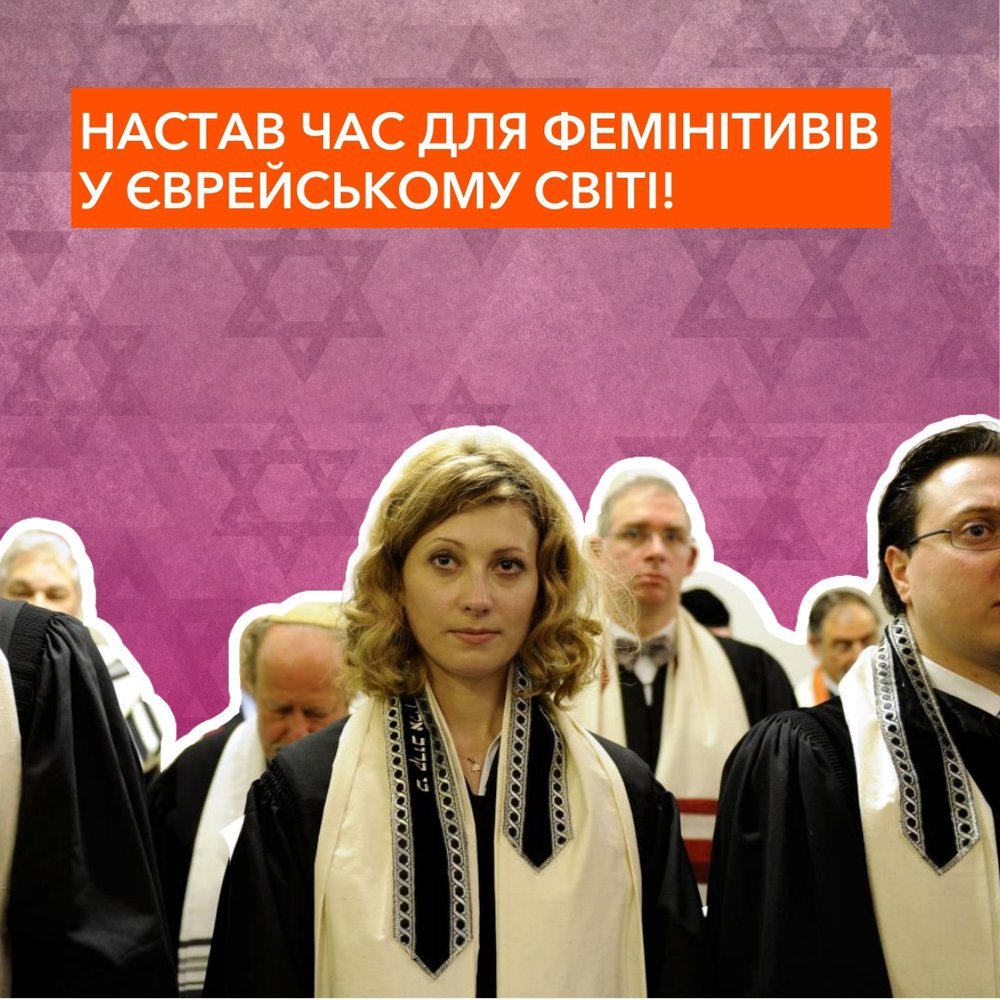Ukraine Has A New Word for Rabbi
Project Kesher Ukraine (PKU) has played a key role in the evolution of the Ukrainian language to reflect the modern values of the Jewish community. PKU leads the Jewish community in celebrating diversity in Jewish leadership, and welcomes women as rabbis in Ukraine; however, the Ukrainian word for rabbi, “rabyn”, refers only and specifically to a male rabbi. In support of new visibility for Jewish women, PKU-trained leaders decided that it was time for change in the Ukrainian language.
For decades, in Ukrainian, like in Hebrew, women have had to use the masculine forms of many professional titles, as the feminine forms did not exist. In recent years, more feminitives (words of the feminine gender, denoting profession, job, specialization, etc.) have been introduced into the Ukrainian language. PKU, as an organization that represents progressive Jewish feminism and activism, wrote a letter to the Head of the Department of the Ukrainian Language and Applied Linguistics of the Institute of Philology, Taras Shevchenko National University of Kyiv (Kyiv, Ukraine) requesting that a new word be created and officially recognized. As a result, two new feminitive variants have been introduced officially into the language for rabbi: rabynka and rabynesa.
There are two different feminine suffixes and no rules regarding how to choose which one to use, since feminitives only recently have been more widely introduced, so only the use of the language overtime will determine which word will stick.
Project Kesher Ukraine Executive Director Vlada Nedak shared, “It is time for feminitives to be part of the Jewish world. The term “woman rabbi” does not show women the respect they deserve, and that is why we decided to introduce the feminine form of “rabbi” -- to recognize and appreciate all women who have reached this milestone in their career and in the community.”
In 2019, the Ukrainian Parliament passed a law making Ukrainian the official language of the state. More recently, the country has transitioned into full use of Ukrainian, and the implementation of this transition is expected and required throughout the country. The majority of modern progressive Jewish communal life and resources have been available primarily in Russian and not in Ukrainian, until now. While this transition poses challenges, Project Kesher Ukraine leaders are leading the charge to embrace and change the Ukrainian language for the future. In the past year, in addition to petitioning for a feminine word for “rabbi”, PKU has hosted introduction to Jewish education programs in Ukrainian, and published a Jewish calendar in Ukrainian with artwork by and of women. Upcoming projects include articles in Ukrainian introducing Jewish women leaders in different communities to bust myths around anti-Semitism and Jews, and a Ukrainian Hagaddah illustrated by women.

